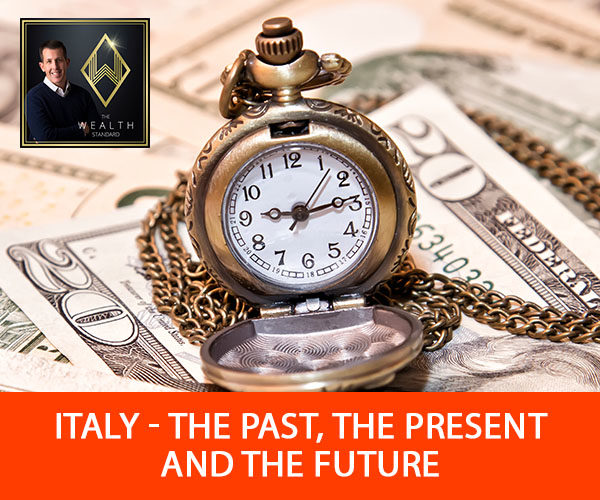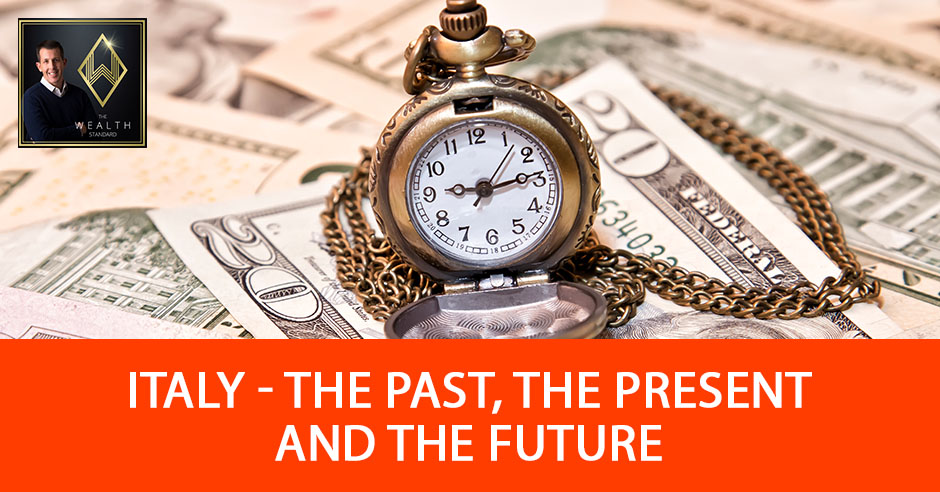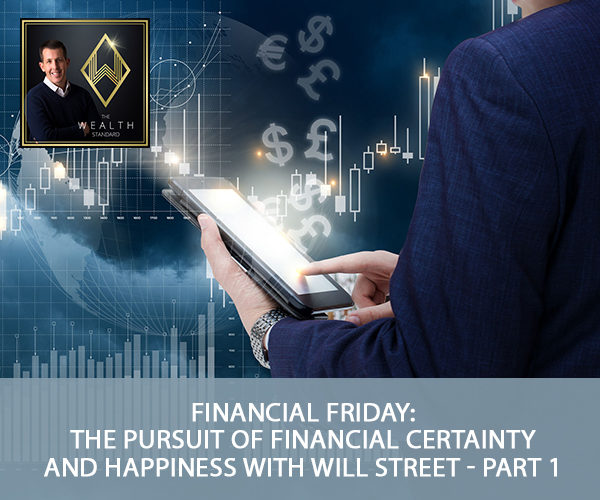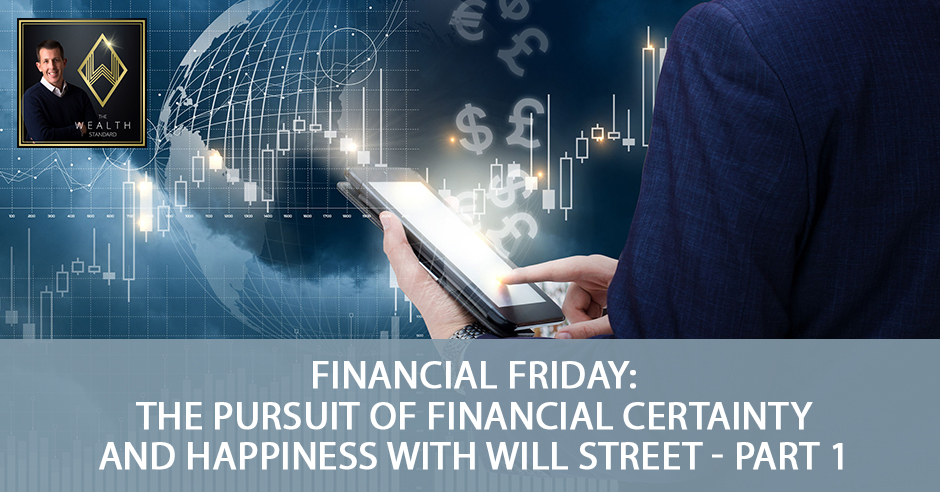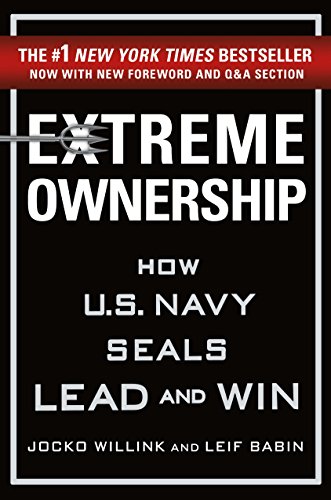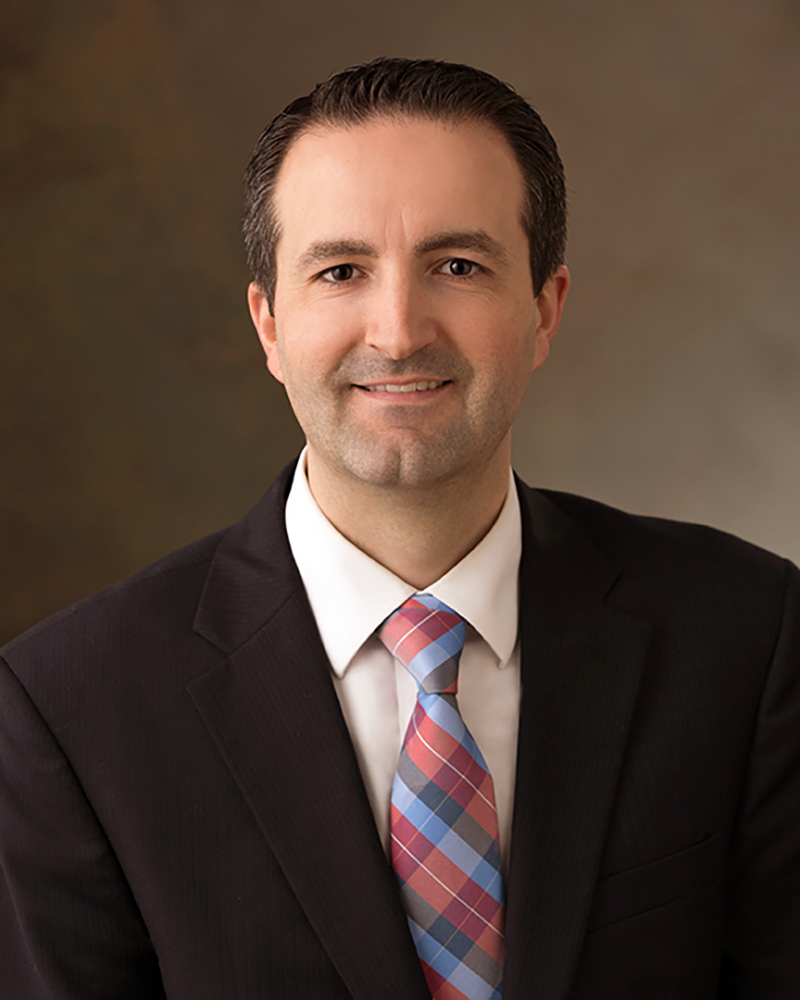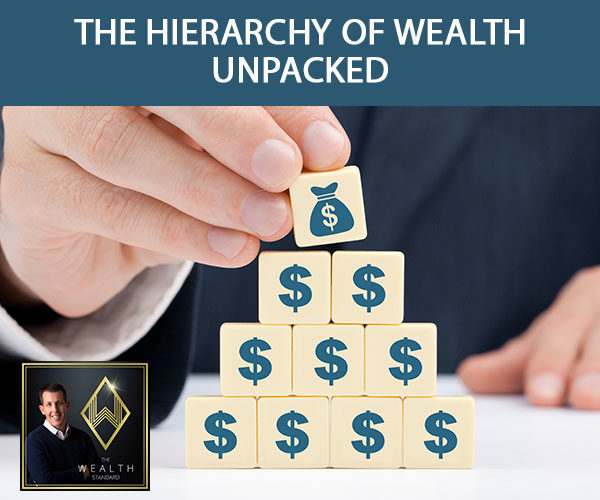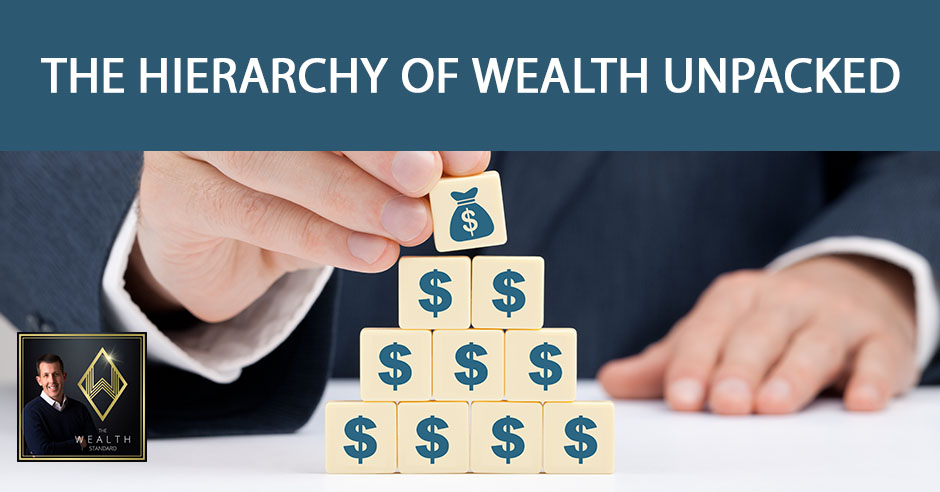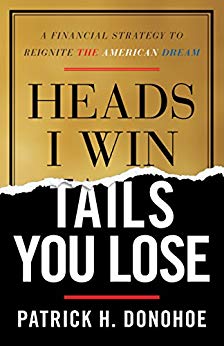Achieving Financial Literacy And Freedom With Sharon Lechter
Podcast: Play in new window | Download
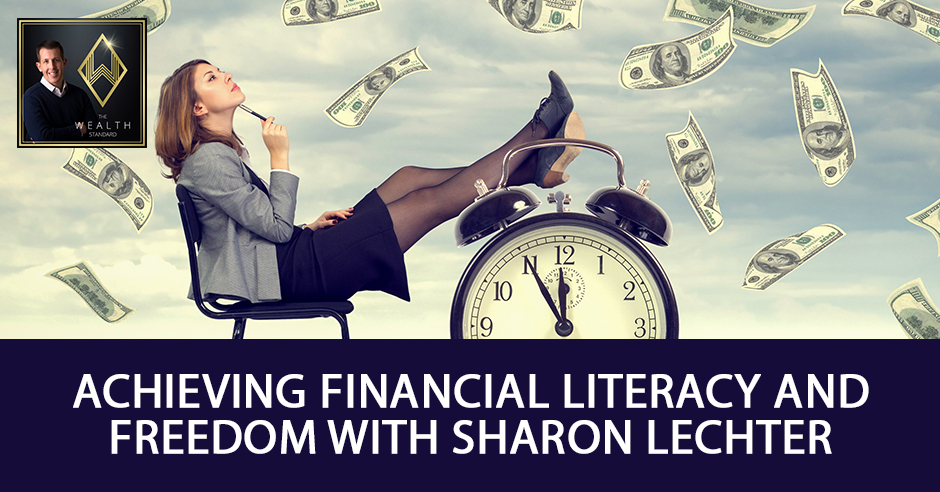
Everybody wants to be financially free, but are they willing to take action? For today’s segment, financial literacy expert, keynote speaker, and best-selling author Sharon Lechter teaches about financial freedom in its barest definition and shares how you can achieve it. Sharon co-authored the international bestseller, Rich Dad Poor Dad, and fourteen other books in the Rich Dad series. She recalls the inspiration that started her into financial education and how this literacy can be a catalyst for change. She also touches on the power of association and reveals the secrets to successful entrepreneurship. The choices that you make today shape what you will become tomorrow. Take action and don’t miss this podcast episode.
—
Watch the episode here:
Listen to the podcast here:
Achieving Financial Literacy And Freedom With Sharon Lechter
Our guest is an interesting one. You will enjoy the interview. It’s Sharon Lechter. Sharon is the former CEO of Rich Dad and Pay Your Family First. She’s an entrepreneur and a number one New York Times international best-selling author, philanthropist, international speaker, mentor, licensed CPA and chartered global management accountant. She co-authored Rich Dad Poor Dad, which is why you must be thinking about her name. She also co-authored with Donald Trump and Kiyosaki in Why We Want You To Be Rich. Also Greg Reid who we interviewed, she co-authored a book with him called Three Feet From Gold and also Outwitting The Devil, Think and Grow Rich For Women, Success and Something Greater: Your Magic Key. She’s written a lot of books and she’s written quite a bit.
She was in Columbia and had some cool things to say about that. I do a lot of work with the Rich Dad organization, mainly their Rich Dad Advisors. I have great relationships with all of them, with Tom Wheelwright and Andy Tanner, the Cashflow Wealth Summit which is an annual conference is 100% online. I never had the chance to meet Sharon Lechter although I know she was part of the Rich Dad story. I came to gain a good feeling about her as well as respect and adoration. The influence she had on Rich Dad or the influence it had on here and vice versa, I know it’s mutual.
She’s out there doing good and I believe she has some sound principles she talks about and we recommend you to go her website. She’s definitely mission-driven and still has a lot of work to do. I hope you enjoy the interview we had talking about the theme of entrepreneurship. She definitely is one that has seen many of those. If you like the show, we would love your feedback on iTunes. iTunes started deleting podcasts in general, hopefully not our podcast yet and hopefully never. They’re definitely restructuring some of the podcasts stuff on iTunes. If you would head over and support us, that would be amazing. All you have to do is give us a review and subscribe.
—
Sharon, thank you so much for taking the time to do this interview. I’m excited to talk to you about entrepreneurship because you have extensive experience in that arena.
Thanks, Patrick. I’ve been around a long time. I have done a lot of things.
Which says a lot. I’m hoping we can get to some of that. The first that I’ve been intrigued by is I’ve discovered that there are these universal variables or principles that determine the success or failure of a business or an entrepreneur. What are a few of those variables that you have discovered along the way? You’ve seen probably thousands of businesses, lots of success but also lots of failure. Have you come to some of those conclusions?
Certainly. One of the biggest ones is every entrepreneur, they’re in love with their product or their service, their idea, the deliverable of their company but too few of them take the time to build the foundation around that business. Everybody wants a successful business, but in order to make that successful business scalable and then ultimately saleable, you need to have the foundation around it. Some of that part is boring because you have to have the right legal structure, you have to have the right agreements, you have to have the right business systems and most people don’t think about that. It’s very important when you are a young entrepreneur to make sure you have a team around you and mentors that can help you build the business structure so that you can create and scale your success.
Getting to that point though, most entrepreneurs or business owners will start because they have a product or a service. Other than finding an amazing all-star team to put together right out of the gate, what are ways in which you’ve seen someone go through stages of a business to get to the point where they realize, “I need a team, I need some structure and I need to set up my operations this way?” What’s usually the process that an entrepreneur goes through before they have that realization?
The first step is you do start small. I invested $1,500 in our first print run of Rich Dad Poor Dad and continued to reinvest in the profits of the sale of the book so we can continue growing and expanding to a multimillion-dollar operation. It’s making sure you understand the needs that you have and then also that power of association is something that I talk about a lot. We were taught in school to do things on our own. Entrepreneurs typically they have their passion, they have their talent, they have their product and they feel they have to do everything themselves. The power of association is what’s going to speed your way to success.
When you're an entrepreneur, everybody's looking to you for the answer; it can get lonely and scary. Click To TweetIn today’s world, it’s almost a necessity that you have the right people around, the right people that are going to help you market, the right mentors. It’s so important to have a mentor that can guide you around the pitfalls that other people fall into and open the Rolodex. When I have my mentoring clients, I want to make sure that they are looking at what that next level is, not where they are now but where they want to go and who can get them there the quickest. Do I know someone I can introduce them to? Is there a new association, somebody that can help them market their product? Entrepreneurship is a constantly creating environment but with that underlying structure, what you create stays and continues producing for you.
A few things that are interesting around people and having different people with different skillsets, different abilities. How do you go out finding the right person? How do you identify them? Resumes by now are understood as not necessarily the whole truth and nothing but the truth. How do you go about determining if it’s the right person?
There are lots of levels. If it’s an employee, I say hire slow, fire fast. You want to make sure that the employees that you’re bringing on understand your vision, understand where you want to go and that they have strengths where maybe you have weaknesses so they can fill that in but there’s a shared initiative. Let them be an entrepreneur within their job. Part of it is understanding what they’ve done in the past, what their strengths are and then giving them the opportunity to grow within the business. Not just hire them to do the same thing every day and give them the opportunity to own their jobs so that they feel that level of contribution.
In today’s environment, I talked to business owners all the time. If you’re not creating that entrepreneurial environment for the Millennials, install a revolving door because they want to feel like they have ownership over their life and what they’re doing even as an employee. When you’re looking at building your business advisers, does the accountant that you use have experience in what you’re doing so that they can bring their experience to the table to help create greater value for you. Is the attorney you’re using somebody that is an expert in what you do so that they can make sure they’re supporting you, that they’re not learning on your dime? Do you have a mentor who’s challenging you as well as supporting you?
Being an entrepreneur can be very lonely. You may have been a professional in a group of other peer professionals and if you had a question, you walked down the hall and walk into somebody’s office, but when you’re an entrepreneur, you’re the top. Everybody’s looking to you for the answer. It can get lonely and scary. That’s why it’s important to have those people that you and they may be in different industries, but if they’re going through the same growing pains, they may be able to help you deal with issues that come up and help you get past it. It’s a comfort to know that you have people out there that are supporting you in your success as you’re supporting them in theirs.
What are maybe some of those organizations that you have seen best support those leadership and entrepreneur roles? I totally agree with you.
There are quite a few that are regional. They may have a group in your area that may not be national. There is YPO, Young Presidents’ Organization. There’s YEO, Young Entrepreneurs’ Organization. There’s NAWBO, National Association of Women Business Owners. It’s for the women business owners who have more established businesses over $1 million. WPO, Women Presidents’ Organization, I’ve been on their national board and a member of for over twenty years. It’s an incredible organization of peer mentoring. There’s BNI, there’s LeTip. All of these are organizations are there to create and support and inter-networking and supporting each other in businesses. In addition, there are other probably local and regional organizations right here in Arizona. There’s one that’s more of a technology-based group. Check it out. Look out and find out. Talk to other people and what organizations they belong to.
That’s awesome because we haven’t mentioned any of those types of networking groups often. We’re talking about a lot of entrepreneurial principles but as far as networking, it’s always best to learn off of the experience of others instead of having to experience it yourself sometimes.
Experiential learning is so much better than book learning. If you get it from someone else, you save yourself the heartache of learning that lesson the hard way.
One of the things that I find intriguing is the notion of leadership. I find leadership an interesting principle. How have you come to characterize leadership and good leadership and maybe even bad leadership?

Financial Literacy And Freedom: Experiential learning is so much better than book learning. If you get it from someone else, you save yourself the heartache of learning that lesson the hard way.
There are so many thought leaders on the topic of leadership but from my perspective, I try to make things simple. A leader needs to know when to listen. A leader needs to know when to support. A leader needs to know when to make a decision. There are times when your function is that of a cheerleader, letting your team do what they do best and cheering them on. You duck when there’s praise, but you stand up when there’s criticism. There are times as a leader that you have to be the pit boss. You need to make the tough call. You need to call someone who are not performing. A leader always has the vision of the company, but also has the heart of the team and makes decisions based on both.
I would say one of the biggest things that I’ve faced is when you do have to make those critical tough, tough calls, I value the principle of co of kindness. Sometimes the managerial, dictatorial stick, for whatever reason, it’s never resonated with me. For those that experience those feelings, what are some rules of thumb to abide by to hold the line, tow the line but also do so with a degree of kindness as opposed to the proverbial stick?
The greatest talent of leaders being able to listen. Certainly, I know when I was a member of a team, if I knew I had the environment to be heard, no matter what the outcome was, I would respect it because I know I was heard. My thoughts and my suggestions were taken into consideration. As a leader, there are times when you have to be the decision-maker and you have to do what’s right for the company. Sometimes that means somebody on the team is in the wrong seat on the bus and probably if you sit and meet with them and you help them find something that’s better for them, they’re going to be happier in the long term. A toxic employee creates a toxic environment. That doesn’t mean as a leader that you can’t do it with passion and that’s how you communicate with them. Maybe it takes a little more time than a dictatorial leader will, but it ends up being better in the space in the long-term because an employee that is unhappy in their job may stay unhappy in that job. That’s not good for them, it’s not good for the company and it’s not good for the leader.
Part of that comes back to the first question you asked me is if you had the right business systems, the right code of conduct, the code of honor, things that imply what your business is for, what you believe the code of conduct is and an employee is not performing. If you can manage to the system, it’s a lot easier than manage to the personality because it keeps the emotion out of it. I had a client, a very successful dentist, he’s having a terrible time with her Millennial employees. She was very much more 8 to 5, “Don’t use your cell phone when you’re at the desk.” We sat down and I said, “Why don’t you have a code of conduct? When the next time you have a problem, you say, ‘Which one of these do you think you violated?’” It can almost become comical because I say, “I blew number five.” “What are you going to do about it?” It takes that angst, that emotion out of it because you’re pointing to a piece of paper, not to a person. That’s something that I share with all of my clients. Think of McDonald’s, you take out a little bit of that emotion and when you have high emotion, you have low intelligence. If you can manage the emotion, you’re going to get better results.
I’d love to hear your story. What are maybe some resources to point to, to understand what a code of conduct or code of honor is, how it’s created and then maybe get into some business systems? Are there some resources or guides that would help someone that’s listening that may have a smaller business that does not have established systems and would want to explore establishing?
Certainly. My husband’s an intellectual property attorney. He’s been by my side and he’s the legal mind behind many of the businesses I’ve built and created, this global brand as well as Rich Dad and many others. We put together a course called Essential Components of a Successful Business. I’m not intending this to be a commercial message, but I’m answering your question. We have that course. You can find it at SharonLechter.com because we couldn’t find it anywhere else. It’s like a college MBA class on how to build every aspect from the legal structure, understanding intellectual property, how to protect it and leverage it, business systems, how to raise money, different ways to use other people’s money, other people’s time, other people’s resources, understanding marketing and communication strategy and how important that is to have the follow up and the follow-through.
People talk about follow-up. Following through is usually the problem. It’s understanding every aspect of business systems from the moment somebody answers the phone, to following through on emails, whether you have a funnel, making sure that the customer experience is there and systems on how are you going to pay your bills, how are you going to collect money, what is your system so that you can stick to it, so that you have an organization that can be duplicated or scaled. Those systems are so important. It’s all held together by you as a leader, your team and your vision, your mission of the company. Once you can solidify that, you have an asset. That business becomes an asset. It’s no longer a job. It’s an asset that can operate with or without you.
From a system standpoint, there are so many different industries out there, different types of businesses, whether it’s product-related, service-related. Have you found that business systems are mostly universal or do they vary from industry to industry?
They vary between a large manufacturing company versus a service company. It is unique to the style of business that you have. Think operations manual, that’s step one. How does your business operate? How do you source your goods? How do you source your components? What are the financial terms related to that? Is it in time delivery or do you want to hold a certain number of days of supply down to how much of this do you have components? Who’s going to combine them? What’s the quality control procedures? What’s the return procedures? What are you going to do in handling defective merchandise? What is your return policy?
All of those and that’s a small piece of the types of systems that you have. Your operations manual is your first step in defining what’s missing within your business systems. I’ve got clients or people that have gotten all excited because they’ve got a big order from Costco or from QVC. They spent and they went and mortgaged their house to get the money to create products to be on QVC to find out that it all got dumped back to them. They lost a fortune because they got this high emotion. They didn’t have the systems and the financial intelligence to understand the importance of managing your cashflow.
Oftentimes, saying yes can get you in trouble. The entrepreneurial curse is you want to say yes to everything, but you should only say yes to a few things.
Financial freedom comes when income from your assets exceed your monthly expenses. Click To TweetA lot of people say yes and then figure out how. It can be a nice thing to say, but it’s a hard thing to do. You have to make sure you’ve got the financial wherewithal to follow through and then it’s the right thing for you and your business.
There’s a book that I read, Ready, Fire, Aim, and I see the point behind it. At the same time, there are also some drawbacks to approaching big decisions that way. Talk about what your story is and what gave you this bug. Clearly, you’ve had so many different experiences, whether it’s writing books or running businesses, consulting within numerous industries. What gave you that bug and what has kept it alive?
I started my profession as a CPA. Even from the very beginning of my career, I was inside companies of all different industries and saw how they did things right. Probably more importantly saw a lot of them did things wrong. It gave me this base of understanding of business operations and systems and what it takes to be successful in business. Fast forward a few years, I get married and meet the inventor of the talking book. I was able to take that and apply that in-licensing strategy around the globe. We had a new technology. This was back in 1987 before a child had any electronics. We were the very first electronic in a child’s hand. To get the parents to trust us, we partnered with companies like Disney, Warner Brothers, Sesame Street.
Understanding that power of association that helps validate you and elevate you when you needed it most allowed us to grow a very successful company that exploded over the four years from $1 million to $9 million to $23 million to $52 million in sales. Selling that company, we moved to Arizona. This was back in ’91 and in ’92, my oldest son went off to college and came home from September to December. He came home in December with a credit card debt. We didn’t even know he had a credit card. He got to college and there was a table saying, “Free pizza, free money,” and other one, “Free T-shirt, free money.” He had a good time his first semester in college. That was when he came home. It was December of ’92, we said no to bailing him out and we made him figure it out on his own.
It’s probably one of the better decisions we’ve made as parents. That was December of ’92 and that’s when I dedicated the rest of my career to financial education, financial literacy and entrepreneurship education. My passion now is as strong as it was in December of ’92. The way that I’ve done things that built the Rich Dad organization over ten years to be the largest personal finance brand in the world because of the need. I grew up in a very entrepreneurial home. I didn’t understand that everybody didn’t think the way I did. Financial freedom comes when income from your assets exceed your monthly expenses. It’s that simple. You want to invest your time in buying, building or creating assets. Once those assets get to that point, you’re financially free. It doesn’t need to be millions of dollars.
When I met Robert Kiyosaki, he was only making $100,000 a year. He lived in a two-bedroom condo. He had two small apartment complexes and it generated $100,000. His living expenses were $30,000. He was technically financially free. That message is what more people need to understand because people think financial freedom is when you’re at $10 million. No. You can become financially free if you focus on buying, building and creating assets. That has been my lifelong passion. I had fifteen books with Rich Dad. I’ve done four books with the Napoleon Hill Foundation, Three Feet from Gold, Outwitting the Devil, Think and Grow Rich for Women. Success and Something Greater, the reason I wrote this book is I want people to wake up that success means different things to different people.
We have some content that has never been published from Napoleon Hill, but we also highlight close to twenty people that have created success in their industries, all from different magic keys or secret sauce, whatever you want to call it. Their focus and their definition of success is different, but then they also always gave back that success and something greater. The reader is going to see these different stories of success and one may not relate to them at all but the next one can go, “I can do that.” I want to empower people to realize that you are where you are now because of the choices you made before now. If you want success in your life, start making different choices because it’s never been easier to start a business. It’s never been easier to promote a business. It’s never been easier to create success in your life if you do it with the right information.
From 1992, you have grown and it’s awesome that this book is coming out. At the same time, what trapped your son in 1992 it seems that the educational system, the business environment has continued to grow as well and not necessarily providing the financial education for individuals to achieve that end of financial freedom. What do you see in the Millennial generation or what do you see in the environment now that gives you hope? I’m talking mostly in the United States, but the indoctrination of kids and how they’re trained to be employees, trained to be managers, what are some signs that you see that things are changing, that kids are waking up? The Millennial generation, I find extremely fascinating because it’s totally different than all previous generations and they haven’t bought in as hard as a lot of other generations have. What else are you seeing maybe besides the Millennial generation that gives you hope?
There’s a positive and a negative. Millennials now and the younger generation, they recognize that there’s no job security. They recognize that there’s not going to be a 30-year career with a gold watch. They’re not going into it with that expectation, which means they also have more demands. You have to make sure you understand as an employer that it’s not just the paycheck, it’s the environment. If you want to build loyalty in your employees, you need to understand what they want, what they’re looking for and make them feel ownership in what they’re doing with your company. In addition to that, the school system itself is still behind the times. We’ve succeeded in some states, Arizona, we now have personal financial educations as a requirement for high school graduation. It’s not enough and we’re still working on that degree.
We talk about how the rich get richer, the poor get poorer. That’s because they learned about money at home, not at school. If we truly want to level the playing field for students and people around the world, providing that financial education is what’s going to give kids an equal footing. As we see these kids coming up, a lot of people say, “They’re lazy. They don’t want to do anything.” There are those individuals in every generation. I see young people eager to take control of their own lives, eager, recognizing that there is no job security. We will always need employees. Companies will always need employees. If you are in the market and with our low unemployment right now, it’s even more important to create an environment where your employees are proud to be part of your company. Proud to be there, proud to want to work for you and create success. As an employer, as a leader, sometimes you have to be more creative as to how you maintain that environment of excitement even if it’s a corporation and environment of entrepreneurship.

Financial Literacy And Freedom: If you want success in your life, start making different choices and start building your business.
Sharon, you’ve provided so much information. Tell the audience how they can get your new book and also access some of the resources that you have available. Maybe talk one more time about the business course that you have available on your website.
Thank you so much. I appreciate that. SharonLechter.com is my website. I’m also Sharon Lechter on Facebook, LinkedIn, Twitter, Instagram, everywhere. On my website, you can find more information about several online courses I have. One is the Essential Components of a Successful Business, which I spoke about earlier with my husband. I have a Financial Mastery Course that is also very in-depth getting you from being financially stressed to financially secure. I have a Play Big course, which helps take you to the point where you are financially free. All of those are available. I also have another course on Think and Grow Rich for Women.
For free, I have a podcast, Play Big Movement with Sharon Lechter and then I also have a private Facebook group, Play Big Movement with Sharon Lechter. I invite you all to join all of those. The book Success and Something Greater is available through Amazon. If you want to have a special gift related to you defining your own personal success equation, you can go to Bit.ly/successequation. It’s not a sales pitch. It’s a download of walking you through your own personal success equation, your passion, your talents, your powers of association, what actions you can take and most of all having faith in yourself, faith that what you’re doing is needed and necessary and faith that you can succeed.
Sharon, this has been amazing. Thanks again. Any final words of wisdom?
I want to thank you, Patrick, for what you’re doing. The more information we get out there energizes people to take action. I literally came home from Columbia and the folks down there, South America, they’re so eager to learn. They’re so excited. They were there before the doors open. They stayed until after the doors closed. They were so eager. I think we need to get people energized, particularly in the United States, to take the action. Many people are waiting for it to come to them. Don’t wait, make that decision and go out and create your success.
When the spectrum is wide as far as having freedom and not having freedom and being pushed in certain directions, especially from a country and political standpoint, it’s amazing how much freedom is valued, how much education is valued, how much other perspective is valued. I have tremendous hope for South America. Columbia has made its strides.
It’s amazing. It’s like the beginning. It’s on the upswing. It’s very fast-growing economy with people that are so loving and excited and eager to learn. I’m looking forward to seeing how the economy there grows.
Sometimes those countries have to experience some pretty rough times in order to turn things around and have a shift for the better. That’s awesome you were down there and were able to give them value.
Thank you. It was wonderful. They were incredible people. It was incredible seeing the progress.
I know it’s making a difference and I look at countries like Venezuela and I know Argentina is having issues too. It’s one of those things where you have the Columbias of the world and you have other countries that are making these drastic changes, it provides that flagship and a beacon of hope for the other countries that are their close neighbors. Thank you again for your time, Sharon. Best of luck on everything. We’ll get the word out on all the resources that you mentioned as well as your books.
Thank you, Patrick. Thank you for all that you do.
Important Links:
- Rich Dad
- Pay Your Family First
- Rich Dad Poor Dad
- Why We Want You To Be Rich
- Greg Reid – previous episode
- Three Feet From Gold
- Outwitting The Devil
- Think and Grow Rich For Women
- Success and Something Greater
- The Wealth Standard on iTunes
- Young Presidents’ Organization
- Young Entrepreneurs’ Organization
- National Association of Women Business Owners
- Women Presidents’ Organization
- BNI
- LeTip
- Essential Components of a Successful Business
- SharonLechter.com
- Ready, Fire, Aim
- Facebook – Sharon Lechter
- LinkedIn – Sharon Lechter
- Twitter – Sharon Lechter
- Instagram – Sharon Lechter
- Play Big
- Think and Grow Rich for Women Course
- Play Big Movement with Sharon Lechter Podcast
- Play Big Movement with Sharon Lechter – Facebook group
- Bit.ly/successequation
- https://www.Facebook.com/AuthorSharonLechter/
- https://Twitter.com/SharonLechter
- https://www.Linkedin.com/in/SharonLechter/
About Sharon Lechter
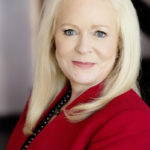 Sharon Lechter is internationally recognized as a financial literacy expert and keynote speaker. She is a New York Times Bestselling author, successful entrepreneur, philanthropist, and licensed CPA and CGMA.
Sharon Lechter is internationally recognized as a financial literacy expert and keynote speaker. She is a New York Times Bestselling author, successful entrepreneur, philanthropist, and licensed CPA and CGMA.
Sharon has been a pioneer in developing new technologies, programs and products to bring education into people’s lives in ways that are innovative, challenging and fun, and remains committed to education – particularly financial literacy and entrepreneurship. In 1989, she helped the inventor expand the electronic book industry to a multi-million dollar international market.
As founder and CEO of Pay Your Family First, a financial education organization, Sharon has served as a Presidential Adviser to Presidents Bush and Obama on the topic. In 2009, Sharon was appointed to the National CPA Financial Literacy Commission as a national spokesperson on financial literacy and was reappointed in 2014. Sharon is also a Founding Chancellor for Junior Achievement University of Success and was appointed by Arizona Treasurer Kimberly Yee in 2019 to the Arizona Financial Literacy Task Force.
Sharon co-authored the international bestseller Rich Dad Poor Dadand 14 other books in the Rich Dad series. Over 10 years as co-Founder and CEO, she led the Rich Dad Company and brand to global success. In 2008, when the economy crashed, she was asked by the Napoleon Hill Foundation to help re-energize the teachings of Napoleon Hill. Her best-selling books with the Foundation includeThree Feet from Gold, Outwitting the Devil and Think and Grow Rich for Women. And her fourth book, Success and Something Greater was just released in September. She is also featured in the movie Think and Grow Rich: The Legacy.

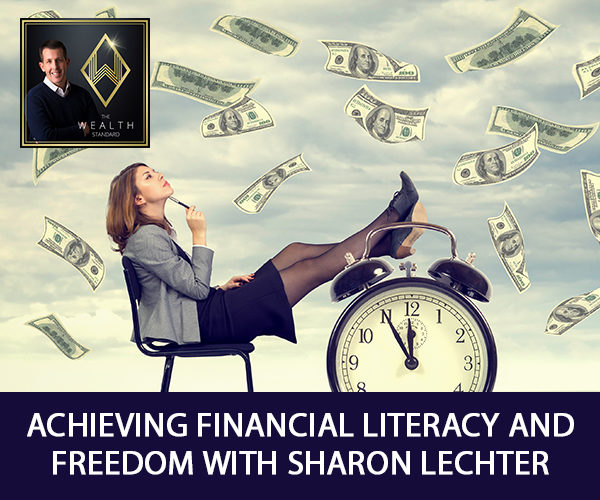
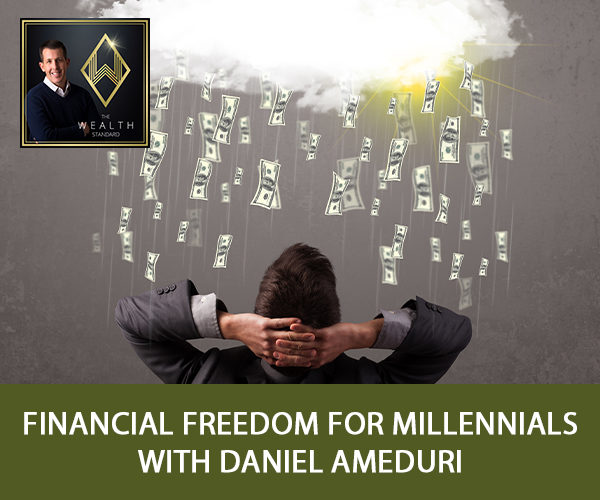

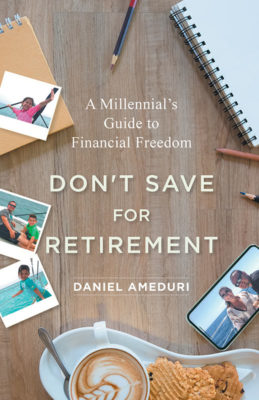


 Daniel Ameduri is a self-made multi-millionaire, a full-time skeptic of conventional thought, and a proud father of three. He is the co-founder of
Daniel Ameduri is a self-made multi-millionaire, a full-time skeptic of conventional thought, and a proud father of three. He is the co-founder of 